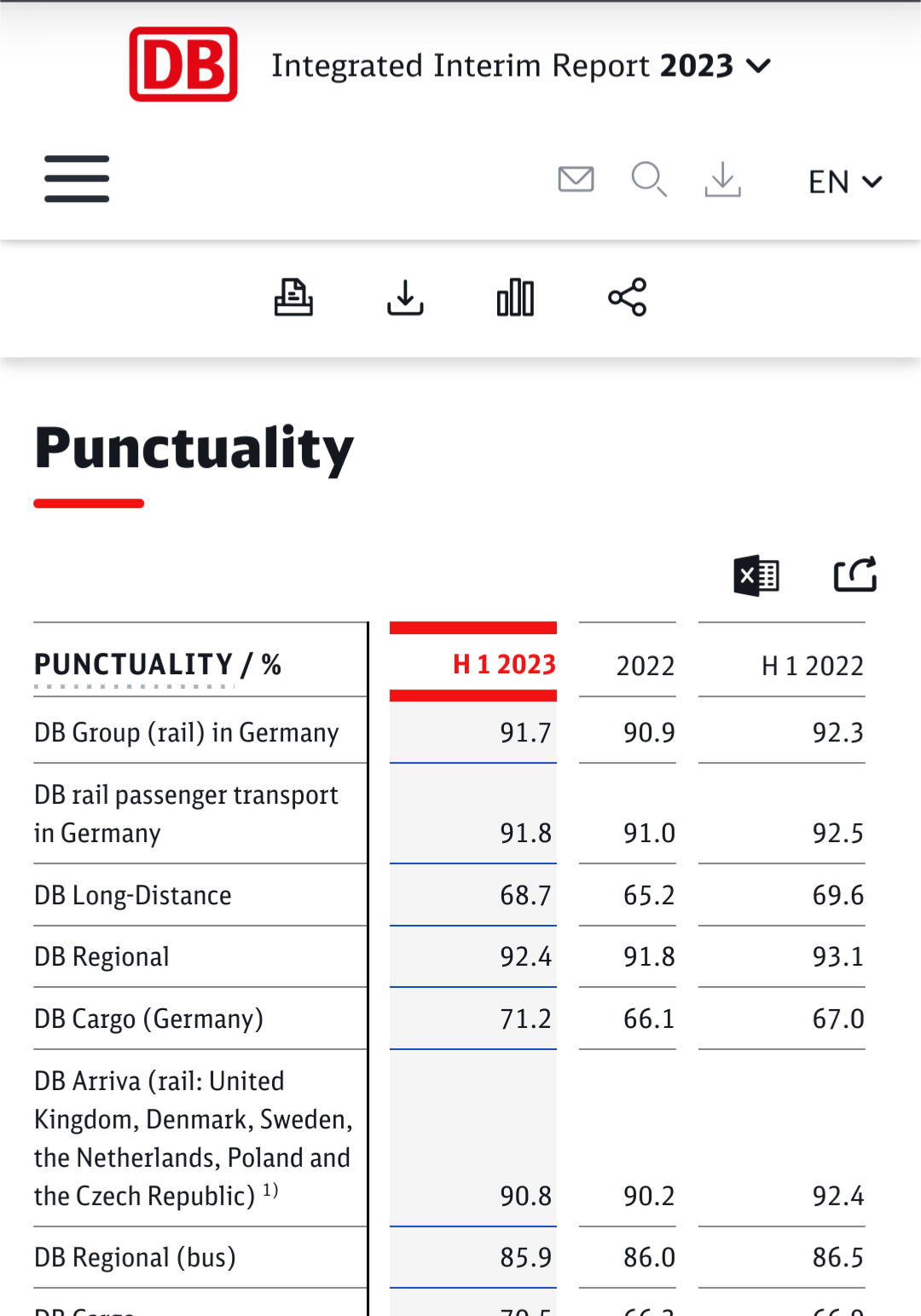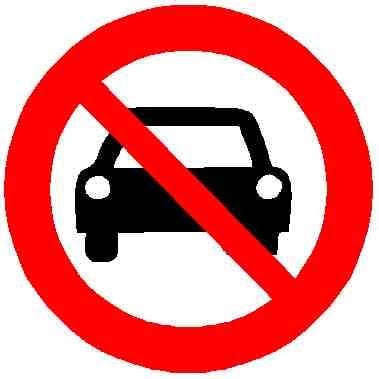Trying to move to escape America’s car-centric hell. The Netherlands is pretty high on the list but I wanted to explore other options. How do the following countries and their cities fair in terms of urbanism:
-Ireland
-Spain
-Belgium
-France
-Denmark
-Portugal
-Sweden
I could list more but I’ll be here all night.
Sweden is basically Europe’s version of the American Midwest. For example, it’s a 10 minute walk across nothing but parking lots to get from the high density housing to the grocery store. Stockholm has around 6 story buildings and a housing crisis, which obviously follows from the lack of high density housing. Instead, all of Southern Sweden is one giant blob of suburban sprawl and SJ (Swedish national rail) is as useful and cost effective as Amtrak.
Denmark is Copenhagen+ lots of suburban sprawl. Transit… existed.
Germany is very much about cars, even if their transit network is robust. You’ll never hear a German say anything good about the trains though.
France has 300km/hr high speed rail that takes you most places you’d want to go, but you have to switch to local regional trains for smaller destinations. No complaints. €2 tickets one weekend a month too.
Belgium is up there with the Netherlands re: trains, but their bike infrastructure isn’t nearly as safe. It’s also like a day to walk across the whole country, so that’s not super impressive. All of BENELUX (Belgium Netherlands, Luxemburg) is half the population of the DC-NYC --Boston corridor, which also has a billion transit options (bus, train, boat, car, plane).
Honestly? You generally can’t go wrong with the Krushevkas of Poland and the Baltics. High density housing with jobs, shopping, schools, and services close by and access to transit anywhere. The soviets really loved their street cars that are still hanging in there and provide service every 10 or 15 minutes , often using nuclear power (Bulgaria, Romania, Poland, Ukraine, Lithuania Slovenia).
Western Europe is alright but Ljubljana just turned their entire old city into a pedestrian only zone, leaving the main road for busses only. You’d never see Paris do that to the Champs-d’Elysée.
Belgrade built a whole new city across the Danube with high density housing after ww2. Unfortunately, they forgot to place the housing near any jobs which causes transit problems to this day. They also tried this thing out, which failed for the opposite reasons.
https://en.m.wikipedia.org/wiki/Western_City_Gate
Overall, Western Europe has the same affordability crisis as the US, but with lower wages and higher taxes. Granted, rents are generally lower too, but there’s a lack of high density urban housing everywhere that’s not already been gutted and turned into an empty city filled with nothing but tourists and airbnbs (Zagreb and Prague come to mind).
By Northern European standards, both Portugal and Spain are poor, so they’re great to visit, but not really ideal for escaping the US. They’ve both been building out high speed trains like crazy in preparation for some EU rules that will finally tax the pollution from airplanes in a couple years. And Lisbon inherited lots of the EU financial services sector from London during Brexit, but going that route means you’ll be gentrifying a 500 year old city to work for British hedge funds.
In general, though, the trains are pretty good, but that has a lot more to do with the logistics of trench warfare than being a thing targeted at helping working class people. That is, you can often find cheap flights that will get you to your destination faster and cheaper than the train. It’s not like there were daily passenger rail trips between France and Germany in 1904. Being able to move civilians in addition to artillery shells was just a happy byproduct.
Great summary. One small correction:
Germany is very much about cars, even if their transit network is robust.
The rail system in Germany has pretty much been unmaintained for decades. It used to be good, but the decay is showing by now and even the Deutsche Bahn says it’s less “calculating” than “guessing” when trains will arrive.
How is that a correction? I predicted that a German would respond to this by shitting on DB.
Also, those rail lines are only decades old total.
Take an Amtrak from Chicago to NYC or a 15 hour ride across Sweden in SJ. You have no idea how good DB is. As much as y’all complain, a quick Google says they are within a 6 minute window 90% of the time. The publicly funded American rail company doesn’t even own the rail it uses.
https://www.bts.gov/content/amtrak-time-performance-trends-and-hours-delay-cause
a g quick Google says they are within a 6 minute window 90% of the time.
It’s currently more in the realms of 62%. In june, it was 52%.
That the arrival times were more guesswork was a direct quote by a Bahn boardmember.
It might not be as bad as the US, but it’s still worse than most of Europe.
what?

https://www.deutschebahn.com/de/konzern/konzernprofil/zahlen_fakten/puenktlichkeitswerte-6878476
Current year numbers. Also: check the long distance values.
Yeah. Super impressive considering the track changes with Denmark, France, Switzerland, and Poland (what about Austria? I don’t remember changing tracks). I’ve had delays of 45 mins on 30 minute NYC subway commutes and Sweden’s trains stop running in the winter because they didn’t bother to get the kind that work in snow.
You can keep arguing, but you’re not gonna convince me DB is bad which is where this discussion started.
It’s severely underfunded. A DB board member is publicly on record, agreeing with me.
Spain has the 2nd largest high speed rail network in the world, larger than France, Germany, or Japan, with 4 companies competing, so prices are often low. The rest of the train network is generally quite good. Mass transit in most cities is very good. Cycle lanes are slowly being created, but Spain, except for Castile/La Mancha, which are mostly plains, is quite hilly, so not the best for cycling.
Barcelona is kinda famous for their pedestrian transformation over the last decade or two and the hiking and trains were excellent.
https://learn.sharedusemobilitycenter.org/overview/barcelona-superblock-initiative-barcelona-2016/
I just think an American would find the salaries for the kinds of jobs that get you visas (healthcare, tech, finance) to be pretty underwhelming, especially if OP has student loans or other debt in dollars.
Glassdoor says €66k/year for a doctor in Barcelona vs $154k/year in NYC. I assure you that anyone who can get a work visa to Spain would come out financially ahead in the US by a long shot. It also becomes pretty hard to travel to the US, even if it’s comfortable to live on the salary in situ. That’s not to say it isn’t totally doable. I do it.
Are public health are and vacation time nice? Yeah, but anyone with a visa-worthy job with an American passport isn’t worried about the cost of employer based healthcare and pay substantially less taxes in the US. It’s great to be rich in the US, but really sucks to to be poor. I just think the unique position of people who can get work visas raises serious questions about whether or not it’s “worth” it.
If a doctor can pocket an extra $50k/year (after college, healthcare, taxes) from the higher paying American job at the expense of paying for some human rights out of pocket, it’s hard to say that doctor shouldn’t hustle in the US for a few years first before finding a way to retire in Spain in 10 years vs working in Spain for the next 30. Visas for owning property or starting a small business are far more flexible and less scary than something attached to a particular employer, city, etc (work visa).
source: I am expatriate American in Europe struggling with this question daily
As a DINK household where both are tech workers - you have hit the nail on the head. We both can get visas to jist about anywhere in the western world with little to no difficulty, so for us it comes down to quality of life and salary. Sadly European salaries are so far depressed from our “normal” ( I make no illusion, we are well paid) take-home salary, that considering relocating across the globe is not currently a worthwhile headache.
I’m hedging my bets against the 2nd American civil war and getting the 2nd passport, but I also live in a country with a king and that’s pretty silly in 2024.
Yeah, I agree with the description of Sweden here. There are some really nicely designed, walkable blocks, but there are also seas of big box stores. The big city downtowns are nice, but even the good suburbs are often not very coherent. A new neighborhood will be built with high rises and a nice design, but there are no stores, and the supermarket is 10 minutes away on foot across busy roads.
There is definitely a lot of value in the “innerstans” and transit-oriented “centrums”, though.
Im not sure if density is the issue in Stockholm, or if all the suburbs just suck. (insert Paris comparison here) Stockholm’s transit system is still very radial and all the suburbs are super car dependent. There are no urban neighborhoods outside of innerstan, Hammarby, and Sundbyberg. Some new towers along the new subway stations would make a lot of sense, but you’d get an even bigger impact by having more infill development around the single family homes and “towers in the park” miljonprogram.
deleted by creator
-Ireland: Trash. Worst urban planning I’ve come across in the entirety of Europe.
-Spain: pretty decent though they love just painting a bike on a slab of concrete and calling it a day
-Belgium: Flanders is generally quite good, Wallonia a bit less so
-France: at least for the southern cities I’ve been to I’d say it was pretty good
-Denmark: only been to Copenhagen but i’d say it was really good, really liveable and safe
-Portugal: don’t remember
-Sweden: Really good. Stockholm’s bike lanes can be a bit of a confusing mess at times but all 3 cities I’ve been to seemed to be really well organised and safe for cyclists and pedestrians.
-Denmark: only been to Copenhagen but i’d say it was really good, really liveable and safe
Denmark is basically less dense Netherlands. Those two are really similar, but there’s greater regional variability in Denmark when it comes to infrastructure.
Denmark also has a land value tax for anyone who’s interested in Georgism.
partner just recently got back from Ireland. car culture definitely exists but mostly because it is a very farm-heavy rural country outside of a few cities. other than shitty weather though the streets in Dublin seem more tame than most in American cities. The zoning laws seem less insane as there are businesses closer to housing, likely making walking/biking more feasible even though a lot of the space can be a bit suburban. Definitely not Amsterdam or Paris. Or super affordable atm, but it is an English speaking option if thats important to you.
The Dutch housing market is very difficult at the moment, so any place worth living is gonna be hard if you don’t bring a huge bag of cash. That said, the Netherlands is a great country to come to because most folks speak English very well and we don’t mind accomodating others.
But as someone who has lived in the Netherlands his entire life, I’d prefer a country like Portugal. Ethically, though, Iberian countries have a big problem with folks from western countries migrating and driving up prices in the more desirable areas. Lisbon is essentially becoming Amsterdam in the sense that you’ll hear more English than the native language.
Sweden is ok. Most of the big cities haven’t been emptied out for parking lots, but there are still a lot of urban highways and public squares converted into parking lots. The worst of these is the “centralbron” in downtown Stockholm, where there’s a 6 lane open highway running directly through the middle of the city, running directly alongside the medieval old town. There’s also a huge project going on right now to build a $5B+ urban ringroad straight through the middle of Stockholm’s suburbs and nature reserves.
The peak of car culture in Sweden resulted in the famous “H-day”, where Sweden converted all of its roads and streets to drive on the right instead of the left. This resulted in dozens of tram lines being completely torn up to make way for cars.
Thankfully, most of the car-centric projects in the 70’s attempted to include separated biking and walking paths, so biking is actually viable in most places. But its not ideal, with the journeys often being long, winding, and confusing, with many conflict points.
Zoning is pretty sane, and there’s no missing middle. the housing projects in the 70s even explicitly set targets for building low-rises and row houses. Housing prices are decent, though they have been rising rapidly recently and there is still a housing shortage. I have unfortunately seen some municipalities implement parking minimums.
Some newer transit-oriented neighborhoods can have world-class urbanist design, but there are also a lot of neighborhoods with big front lawns and two-car driveways. Car culture is very big in Sweden, and I have never met a manager who doesn’t have a fancy car they drive into downtown Stockholm on a regular basis.
Public transport is very underfunded. Stockholm still has a pretty big transit system comparatively, but funding is basically non existant after various political and economic crises in the 80’s and 90’s. After big construction in the 60’s and 70’s, Stockholm since has only built a single new tram line and some new commuter rail stations since the blue line was finished in 1977. A new commuter rail tunnel was also recently built to resolve a capacity and maintenance crisis on the main rail line through Stockholm, but the new tunnel hasn’t resulted in any servicr increases. The commuter rail system has instead more or less been in a maintenance and staffing crisis for the past two years, resulting in huge service delays. Thankfully, there are finally some big new projects underway to build out new subway and tram lines over the next 10 years.
As you’ve probably realised from the replies, there’s a reason all the urbanists talk about the Netherlands.
Though, any other European country would be an improvement to most of America outside NY. You can actually walk to places
How come no one mentioned Switzerland. It is expensive to live there sure, however Taxes are quite low and the wages are higher, the Trains are pretty much the best (at least in Europe) with about 98% of all connections reached. NJB made a video about some parts of Switzerland. Even the roads are insanely good and most of the Highways look like they were build two years ago (who wonders), still of course you will get stuck in traffic.
I specifically didn’t mention it because it’s the singular country in Europe that doesn’t really have work permits for non EEA nationals. As you’ve said, wages are high and the government is great, so it’s naturally a desirable place to live. I’ve got a PhD in AI from a respected European university and I straight up do not qualify for a Swiss work visa, but OP might have better luck if they work in healthcare or attend school there.
Barcelona is the most famous planned city that is not car centric. You can simply exist in Barcelona and never hop on a car indefinitely.
In CZ there is this weird mix of people who really want to change it for better, bureaucracy red tape, NIMBY’s and people who don’t care. So the projects move slowly and sometimes even planners are pissed that they are changed in process.
The public transport is generally good, sometimes even in rural areas. Cycling infrastructure is sometimes hit or miss and isn’t considered much.
Sweden is overall fine, we’re generally depresingly car-friendly but you’re never really car-dependent as such, even in the most turbo-rural areas you’ll have access to a service that is basically taxis operated by the provincial public transport org and runs on the same tickets (though you won’t want to rely on this), and in urban areas you can generally get around perfectly fine with both bike and walking (although walking will take a looooong time).
Stockholm obviously has the very competent subway (which is currently being extended by quite a lot!) and has a bunch of other local railways and an extensive bus system. Gothenburg has the largest tram network in the nordics and is refreshingly human-centric and it’s only getting better.
Malmö is eeeeeeeeeh, it’s got a weird quasi-subway with the commuter trains running through it to the rest of the region, but otherwise refuses to stop trying to solve all their problems with buses.One interesting thing in sweden is that basically any vaguely sizable town will have one or several “suburbs” that are basically a bunch of commie blocks and amenities organized into a tiny town of its own, which will have reliable public transport connection to the public transport hub. This means that you can almost always find some vaguely affordable housing where you can live without ever needing a car.



